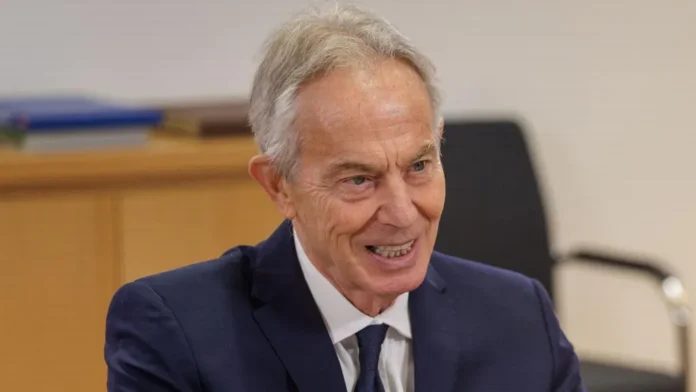Former UK Prime Minister Sir Tony Blair has emerged as a key figure in discussions about the future governance of Gaza, with reports suggesting he could head a transitional authority once the ongoing conflict subsides.
According to the BBC, the proposal carries support from the White House and envisions a temporary governing body backed by the United Nations and Gulf nations, with Blair at the helm.
The arrangement would see the transitional authority hold power until governance could be formally returned to Palestinians. Blair’s office, however, has insisted that he would not endorse any proposal that involves the displacement of the people of Gaza.
Blair, who led the UK from 1997 to 2007, has a complex legacy in the Middle East. His decision to commit British troops to the 2003 Iraq War remains deeply controversial and was criticised by the UK’s official inquiry for being based on flawed intelligence.
Nonetheless, his post-premiership years have seen him heavily involved in regional diplomacy. From 2007 to 2015, he served as Middle East envoy for the Quartet of international powers – the US, EU, UN, and Russia – focusing on economic development in Palestinian territories and advocating for a two-state solution.
In August, Blair reportedly attended a White House meeting with former US President Donald Trump to discuss Gaza’s future. US Middle East envoy Steve Witkoff described the plans outlined as “very comprehensive,” though details remain closely guarded.
The discussions around Blair’s potential role come as Palestinian Authority President Mahmoud Abbas signalled readiness to work with Trump and other world leaders on implementing a two-state peace plan.
Abbas reiterated his opposition to any future role for Hamas in Gaza’s governance, demanding that the group disarm.
The context remains fraught. Earlier this week, the United Kingdom formally recognised the state of Palestine, joining France, Canada, Australia, and others in a move condemned by Israel and the United States as a “reward for Hamas.”
Israel launched its current campaign in Gaza following Hamas’s deadly attack on southern Israel on 7 October 2023, which killed about 1,200 people and saw 251 hostages taken. In the months since, Gaza has endured devastating strikes, with at least 65,419 people killed, according to the Hamas-run health ministry.
A United Nations commission has accused Israel of committing genocide in Gaza, a charge Israel firmly rejects.
The idea of Blair leading a transitional authority has sparked debate. Supporters argue that his international experience and prior regional involvement make him a pragmatic choice to bridge the gap between warring sides.
Critics, however, point to his Iraq War legacy, questioning his credibility and acceptance among Palestinians.
Whether Blair accepts such a role remains uncertain. His office has stressed that he is engaged in high-level conversations but that any authority must be designed to safeguard the rights and future of Gaza’s people.
As regional and global powers push for a framework to stabilise Gaza post-war, Blair’s possible appointment underscores both the urgency of international planning and the lingering controversies surrounding leadership choices in such a volatile landscape.

